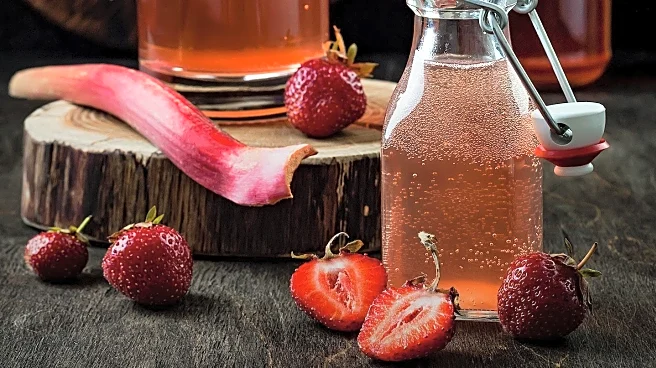What's Happening?
As winter approaches, wellness trends such as cold plunges and kombucha gain popularity, promising to boost the immune system and fend off seasonal illnesses. However, experts caution that these methods may not be as effective as advertised. Cold water swimming, while providing a temporary adrenaline boost, does not significantly enhance immune function. Kombucha, a fermented drink, is touted for its microbiome benefits, but lacks strong evidence to support its impact on immunity. Experts recommend traditional methods like maintaining a healthy lifestyle, regular exercise, and vaccinations as more reliable ways to support immune health.
Why It's Important?
The popularity of wellness trends reflects a growing public interest in alternative health practices. However,
the lack of scientific backing for many of these methods highlights the need for public education on effective health strategies. Misleading claims can divert attention from proven methods such as vaccinations, which remain the most effective way to prevent illnesses. Understanding the limitations of these trends can help individuals make informed decisions about their health, potentially reducing reliance on unproven remedies.
What's Next?
As interest in wellness trends continues, further research may be conducted to explore their potential benefits and limitations. Public health campaigns could focus on educating the public about evidence-based health practices, emphasizing the importance of vaccinations and lifestyle choices in maintaining health. The wellness industry may also face increased scrutiny to ensure that claims are backed by scientific evidence.
Beyond the Headlines
The rise of wellness trends underscores a cultural shift towards holistic health approaches. This movement may influence healthcare practices, encouraging a more integrative approach that combines traditional medicine with lifestyle interventions. The focus on microbiome health, despite limited evidence, could drive future research into gut health and its role in overall well-being.















